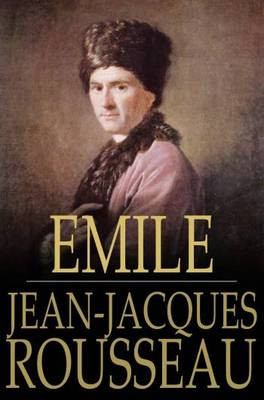

He begins with the early physical and emotional development of the infant and the child.Įmile attempts to "find a way of resolving the contradictions between the natural man who is 'all for himself' and the implications of life in society". In Book I, Rousseau discusses not only his fundamental philosophy but also begins to outline how one would have to raise a child to conform with that philosophy.

The text is divided into five books: the first three are dedicated to the child Emile, the fourth to an exploration of the adolescent, and the fifth to outlining the education of his female counterpart Sophie, as well as to Emile's domestic and civic life. It is regarded by some as the first philosophy of education in Western culture to have a serious claim to completeness, as well as being one of the first Bildungsroman novels. Emile is scarcely a detailed parenting guide but it does contain some specific advice on raising children. He employs the novelistic device of Emile and his tutor to illustrate how such an ideal citizen might be educated. Rousseau seeks to describe a system of education that would enable the natural man he identifies in The Social Contract (1762) to survive corrupt society. Its opening sentence: "Everything is good as it leaves the hands of the Author of things everything degenerates in the hands of man". The work tackles fundamental political and philosophical questions about the relationship between the individual and society-how, in particular, the individual might retain what Rousseau saw as innate human goodness while remaining part of a corrupting collectivity.

During the French Revolution, Emile served as the inspiration for what became a new national system of education. Due to a section of the book entitled "Profession of Faith of the Savoyard Vicar", Emile was banned in Paris and Geneva and was publicly burned in 1762, the year of its first publication. Emile, or On Education ( French: Émile, ou De l’éducation) is a treatise on the nature of education and on the nature of man written by Jean-Jacques Rousseau, who considered it to be the "best and most important" of all his writings.


 0 kommentar(er)
0 kommentar(er)
